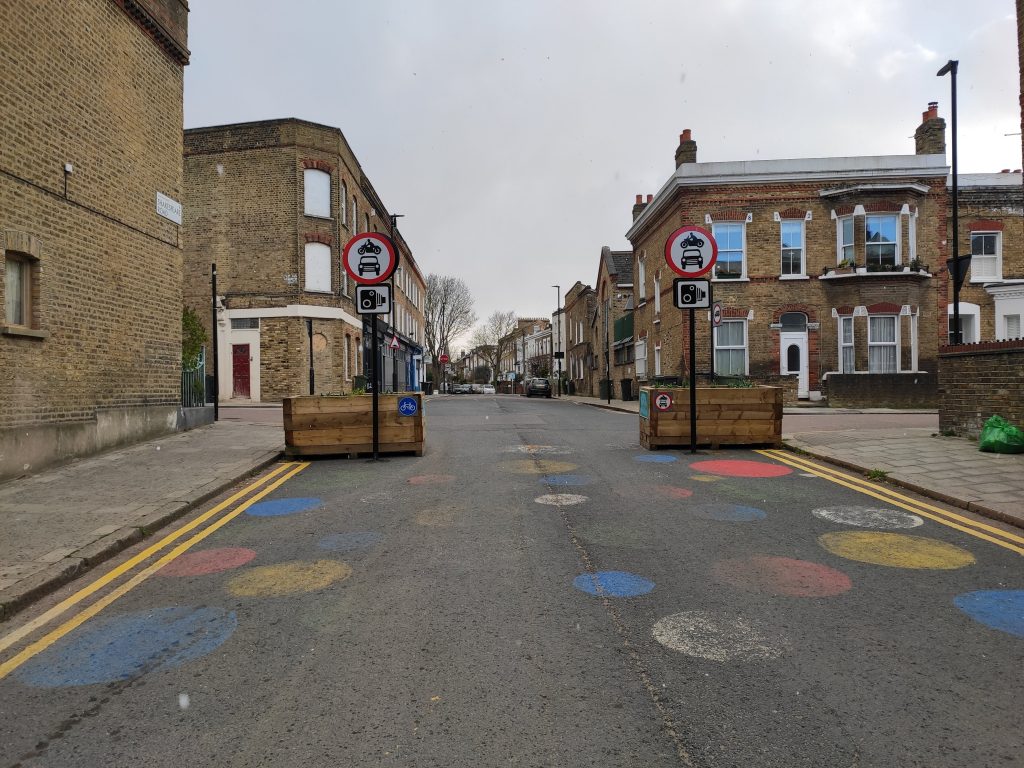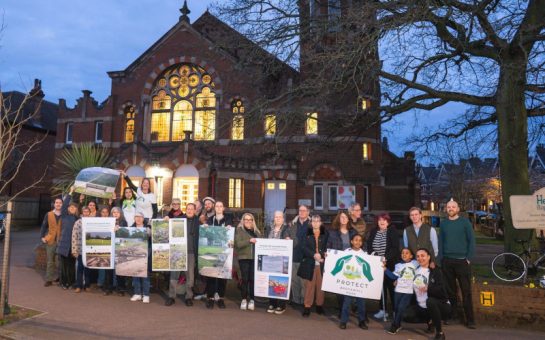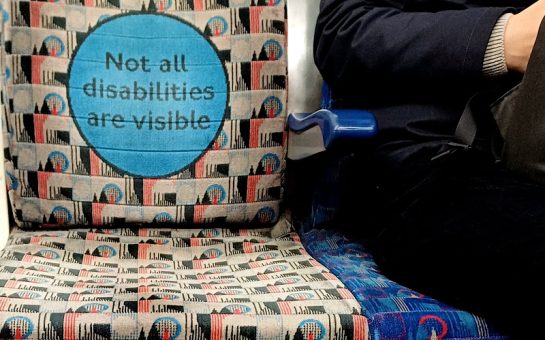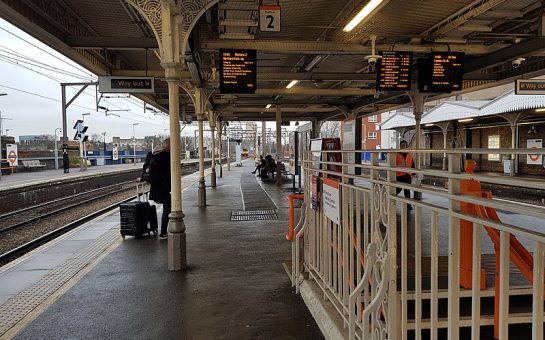A Lambeth resident is taking the council to court over Low Traffic Neighbourhoods (LTNs) for discriminating against people with disabilities.
Divisive among neighbours, LTNs close some residential streets to all but essential traffic, with the goal of reducing the impact of Covid-19 and encouraging environmentally friendly means of transport.
But for Sofia Sheikh, 47, a long-term chronic patient and Covid-19 survivor, they are causing severe challenges to her mobility.
She is now the claimant in a case that is taking Lambeth Council to court for failing to comply with the Equality Act.
Sheikh said: “I don’t like policies that discriminate against anybody, and the Railton LTN is discriminating against anybody who cannot afford a bike, afford to walk or to freely move around their own communities.”
Sheikh has suffered from chronic sarcoidosis, a condition that leads to the formation of non-malignant tumours in her lungs, for over five years.
Her disease has rendered her dependent on a motorised wheelchair, with which she used to be able to get around, riding on her own or using the bus.
A Covid-19 diagnosis 13 months ago, which left her in a coma for nearly six weeks and hospitalised well into the summer, has worsened her condition.
She was still in hospital when she found out her road had been cut to traffic, and was so concerned about the measure she attended an initial meeting with the council from her hospital bed.
“I had a bandage on my neck because there was still blood oozing from my wound,” she described, referring to the wound left for the tube that helped her breathe while in a coma.

Since the changes, her usual route into her road is no longer possible, which has more than doubled her travel time to her hospital appointments.
Sheikh said these extended periods of time in the car can be extremely painful and tiring, limiting her ability to remain functional throughout the rest of the day.
She added: “It is hard to explain to anybody that doesn’t understand chronic pain and chronic fatigue, but the simplest tasks can exhaust you.”
OneLambeth leads the fundraising effort for the legal case, which will be heard on 10th and 11th June.
They argue the council did not conduct an equalities evaluation ahead of introducing the Railton LTN in June 2020.
An assessment published in August established further data needed to be collected to ensure the policy did not overlook the needs of disabled residents.
Sheikh said: “If we know LTNs affect one disabled person, how many other disabled people are they affecting?”
A Lambeth Council spokesperson said: “The start of the Covid-19 pandemic saw capacity on public transport reduced by up to 80% to accommodate social distancing.
“With 60% of households in Lambeth not having access to a car, and with access typically lower for women, Black and disabled residents in particular, we needed to make our streets safer to enable them to walk, cycle, scoot or wheel safely in their local area and access local facilities during the pandemic.
“It’s simply not acceptable to us that if you are a disabled pedestrian, you are four times more likely to be injured by a motor vehicle than a non-disabled pedestrian.
“To not make changes to our streets to protect the most at-risk residents is an abdication of responsibility.
“It is widely accepted that the only way to reduce congestion on main roads running through Lambeth is to reduce the amount of trips taken by motor vehicles.
“This will only be achieved by the council working in partnership with Transport for London and others to prioritise efficient and sustainable modes of transport.
“By supporting safe, affordable and accessible ways of getting round for everyone, we will reduce congestion and free up our roads for those that need to use a car to get around.
“The council is committed to regular, detailed, open and transparent monitoring of the programme including taking onboard feedback from local people and making improvements where necessary.
“This is ongoing and the first monitoring reviews have been published already. As part of our commitment, there will be a public consultation prior to any decision on the future of the projects.”





Join the discussion
The traffic schemes all over London are horrendous for people with disabilities. Closing some roads to anything but buses is discrimination also. The TFL are responsible for a lot of this. Banning Taxis from certain routes is a nightmare for people with mobility difficulties if they cannot be dropped off close to where they need to be, for example, Hospitals, GP Surgeries, Dental Surgeries etc. The list is endless. The congestion charge is another problem. There has to be solutions to all these restrictions & it has to be resolved as soon as possible because of the inconvenience it is causing.
I suffer with chronic pain and am reliant on help and mini cabs so are 3 of my elderly neighbours who live alone a £8 cab to the drs can now cost up to £20 we can’t argue with drivers and the money has been taken straight from our banks people who used to pop round to help now don’t as 10 min drive can take them 1 hour so we are cut off depression has kicked in 2 out of3 want to die they had enough of living